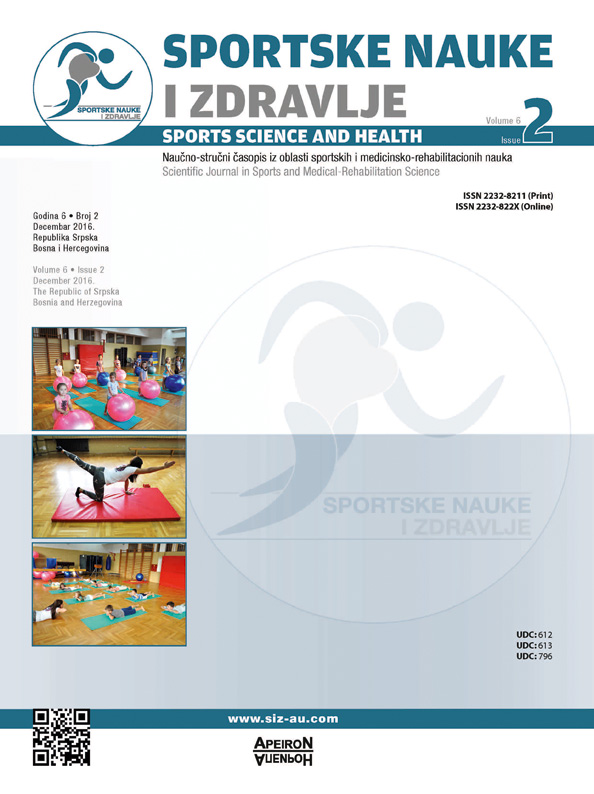Bioelectrical Impedance Analysis of Body Composition in Karate Athletes Regarding The Preparatory Period // Analiza telesnog sastava karatista bioelektričnom impedansom pre i posle pripremnog perioda
DOI:
https://doi.org/10.7251/SSH1602081PAbstract
The aim of the paper was to asses changes in body composition using bioelectrical impedance analysis (BIA) methodology in members of national karate team after teen week preparatory training period. The investigation was carried out on 11 male karate contestants, aged 18 to 28 years mean age (21.82± 3.58). The body composition was analyzed with In Body 720. The BIA outcomes were divided in 3 group of variables: body fluid and body composition variables, obesity diagnose variables and segmental analysis variables. All BIA variables were insignificantly higher at second measuring (p>005). Only Body mass index (BMI=24.1 vs 24.55); mineral (4.69 kg vs 4.77 kg) and osseous (3.85 kg vs 3.92 kg), were significantly higher (p≤0.05) after preparatory period. Body fat mass (BFM=10.34 kg vs 10.75 kg, p=0.329) and body fat percent (BF%= 12.73 vs13.22%) insignificantly increased after preparatory period. The skeletal mass has changed from 40.03kg to 40.55kg (p=0.276). Body composition analysis, changes in weight, BMI and body fluids are essential for weight categories dependent sports such as karate. Positive changes in body components and in body fluids suggest that the training process during the preparatory period did not show negative effects on body components and the hydration of the karate athletes.Downloads
Published
2017-01-03
Issue
Section
Чланци
